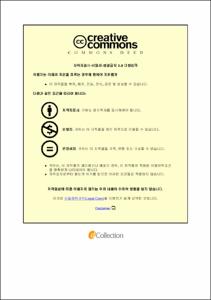중소기업의 원산지(포괄)확인서 발급 시 문제점에 대한 사례분석 연구
- Alternative Title
- A Case Study on the Problems Regarding Declaration of Origin for SMEs
- Abstract
- As of November, 2016, Korea has entered into FTAs with 52 countries, and a Certificate of Origin is required for the application of preferential tariffs. Origin management, in accordance with the Certificate of Origin, shall be based on the country of origin information, from the supply and demand stage of raw materials to the end of the production process. The Declaration of Origin, which is a document proving the country of origin in the domestic trade relationship, is required to be issued even from companies that don't export. However, due to the fact that companies issue these autonomously, their credibility and reliability are reliant on the company's own capabilities and could be deficient. Since the Korea-China FTA has been in effect from December of 2015, it is expected that the Verification of Origin will increase drastically and even companies that do not export a lot will be held responsible to issue Declaration of Origin. This study looks in depth at 21 Korean Small and Medium Enterprises (SMEs), including SMEs that do not export, to find out what kind of problems SMEs can have when they issue the Declaration of Origin. This study analyzed the problems based on the types of factors derived from previous studies; Recognition and Application of FTA, Understanding of the rules of origin, Current state of origin management and Concerns over disclosure of details of the originating agent and the originating data. In order for companies, that have no experience in export, to have FTA awareness and access to information, they will need policy changes, promotion, education, and support from the government. Also, since the companies should recognize the responsibilities of the changes in the trade environment and adjust their origin management systems accordingly, this study presents policy implications resulting from this analysis.
- Issued Date
- 2017
- Awarded Date
- 2017. 2
- Type
- Dissertation
- Keyword
- 원산지확인서 원산지(포괄)확인서 FTA 원산지관리 중소기업
- Publisher
- 부경대학교 대학원
- Affiliation
- 부경대학교 대학원
- Department
- 대학원 국제통상물류학과
- Advisor
- 조찬혁
- Table Of Contents
- 제1장 서론 1
1.1 연구의 배경 및 목적 1
1.2 연구방법 및 구성 5
제2장 이론적 배경 및 선행연구 7
2.1 이론적 배경 7
2.1.1 FTA 무역환경으로의 변화 7
2.1.2 원산지 증빙서류의 필요성 9
2.2 원산지(포괄)확인서 14
2.2.1 원산지(포괄)확인서 개념 14
2.2.2 원산지(포괄)확인서 유형 16
2.2.3 원산지(포괄)확인서 작성 24
2.3 선행연구 31
제3장 업체에 대한 사례 분석 36
3.1 사례분석 개요 36
3.2 사례분석 방법 38
3.3 사례분석 결과 40
3.4 사례분석 결과에 따른 유형별 업체 사례 43
3.4.1 FTA 인지 부족 사례 43
3.4.2 원산지 이해도 부족 사례 48
3.4.3 원산지 관리 부족 사례 51
3.4.4 소명자료 노출 우려 사례 61
제4장 문제점 분석 및 정책적 시사점 64
4.1 문제점 분석 64
4.1.1 업체측면에서의 문제점 분석 66
4.1.2 정부측면에서의 문제점 분석 67
4.2 정책적 시사점 68
4.2.1 중소기업에 대한 원산지(포괄)확인서 홍보 강화 68
4.2.2 원산지전문가를 활용한 컨설팅 지원 69
4.2.3 정부예산의 효율적 배분 70
4.2.4 중소기업의 원산지관리를 위한 시스템 홍보 및 지원 71
4.2.5 원산지 인증수출자 제도의 활용 72
제5장 결론 73
참고문헌 75
- Degree
- Master
- Appears in Collections:
- 대학원 > 국제통상물류학과-FTA비즈니스전공
- Files in This Item:
-
-
Download
 중소기업의 원산지(포괄)확인서 발급 시 문제점에 대한 사례분석 연구.pdf
기타 데이터 / 35.06 MB / Adobe PDF
중소기업의 원산지(포괄)확인서 발급 시 문제점에 대한 사례분석 연구.pdf
기타 데이터 / 35.06 MB / Adobe PDF
-
Items in Repository are protected by copyright, with all rights reserved, unless otherwise indicated.